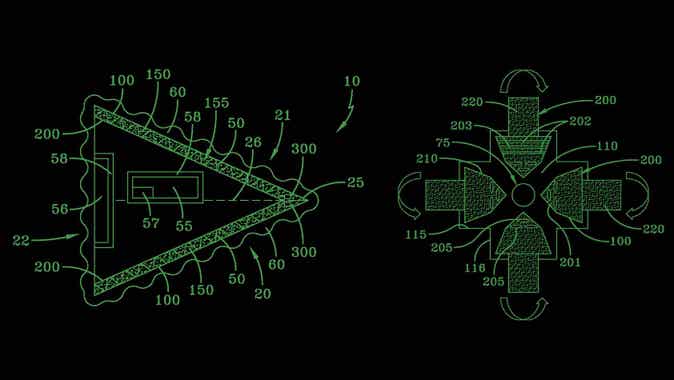SALVATORE PAIS’S MYSTERIOUS ‘UFO PATENTS’: WHAT DO THEY REALLY MEAN?
Which leaves us with the question: Why, then, is the Navy pursuing Pais’s patent applications? It can’t be because they have military significance (if they did, the Navy would be keeping them a secret) and it can’t be because the Navy cares about what other countries are patenting (when it comes to national security, international IPR law matters not). What is left then?
It could be for something as simple as highlighting the relevance and potential value of NAWCAD’s work—making it visible through the media attention those unusual patent applications did get—to increase or protect funding. It could also be because of less-sensational but practical applications of some ancillary embodiments of the inventions outside defense—think of the energy industry, for instance—where patents do make commercial sense.
If you think these are too trivial or implausible reasons to justify the significant reputation risk the Navy has taken on by claiming the invention of gravity drives and inertial mass inhibitors, you will have to enter some tricky speculative territory. I prefer to refrain from that myself. What I am willing to do is to briefly comment on the effects the Navy’s claims have had, for such effects are observable facts, not speculation. And they may provide some hint about the goals of the patent applications to begin with.

Add comment